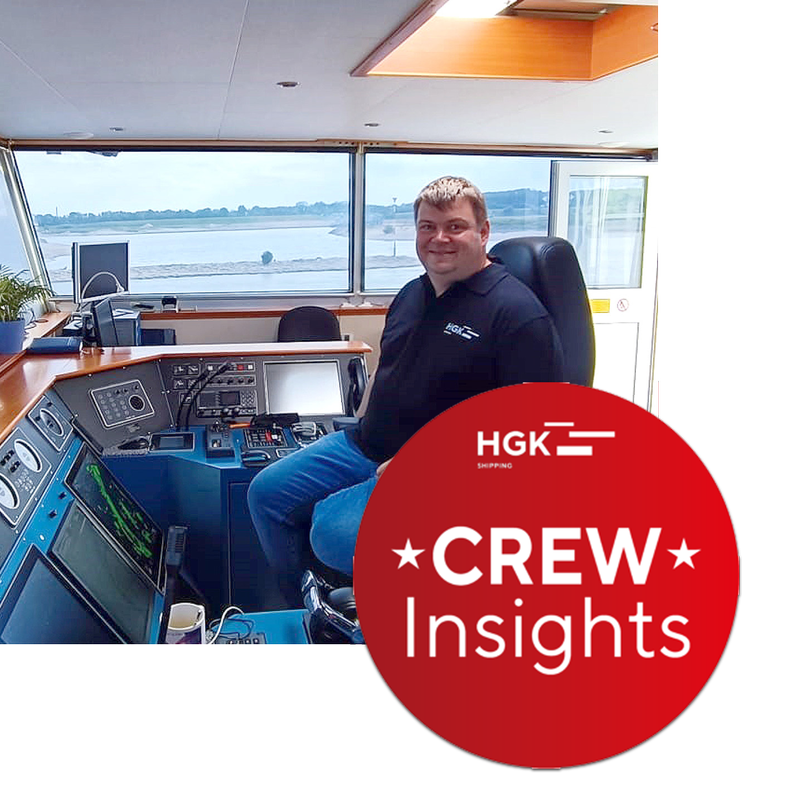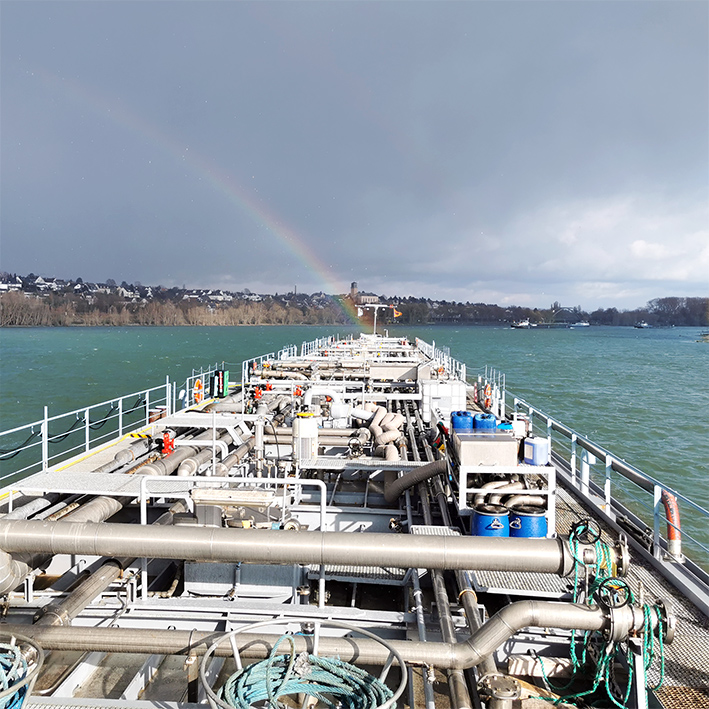Mirko is 34 years old and lives in the Ahrweiler district, near the Nürburgring motorsports complex. Since 2015 he has worked in our HSL (Shipping Lux) as a captain. In his spare time he enjoys music and motor sports. Growing up near the Rhine, his interest in ships started early and he took up sailing in 1997.
His real entry to the profession began later with a student internship in inland navigation. He enjoyed this so much that in the holidays he promptly took up another internship.
Spot on with his career choice
After this, he began his apprenticeship at the Waterways and Shipping Office at Bingen in 2003. Following the apprenticeship he moved to a shipping company based in the Netherlands. For him this change was the biggest challenge of his career, swapping 20-30-metre vessels for pushed barge trains of up to 200 metres in length.
‘My best career decision was to choose this job. I can’t imagine myself doing anything else.’ Mirko considers the continual ongoing training as he obtains his certifications and progresses towards the role of captain as another good choice.
Internship as the ideal entry
Mirko advises young entrants who are considering an apprenticeship in inland navigation to undergo an internship. ‘With an internship you can get a taste of whether the job is for you or not. It also lets you make your first contact with the employer and show your willingness.’ Although the profession of barge skipper is one of the best-paid apprenticeship trades, in his view this should not be the motivation for taking it up.
My best career decision was to choose this job. I can’t imagine myself doing anything else.
Flexibility and helpful colleagues
The particular appeal for Mirko is the variety of the freight, boats and operating routes. If he could choose his own journey, he would like to take a transport to Basel. The essentials to have on board are a radio, friendly colleagues and above all, coffee.
His job as a captain also includes ‘getting his hands dirty’ and doing cleaning and maintenance tasks, since everyone on board has to pitch in in all areas. Regular contact with the personnel management from Luxembourg is also a part of his everyday activity. ‘My colleagues are always ready to help and to support me if there are problems or questions. We really do communicate very well.’
Next I would like to put a question to our CEO, Steffen Bauer:
How do you see the future of inland navigation and the company, including in terms of transport volumes, personnel and vessels?
‘I see the future of inland navigation and the company very positively. Our new vessels, Gas 94 and Synthese-18, and our two newly ordered type C tankers and Gas 95, show that we want to grow further and to invest in the future. In my view, transport volumes need to be moved from road and rail onto barges in order to reach our climate goals and to compensate for lost volumes. In addition, new products will appear that will be transportable by barge, such as the example given here of hydrogen. Here we are working closely with our customers and policy-makers to create the right conditions. We as a company are responsible along with our qualified personnel for making the necessary ship space available. But we also need qualified personnel for new vessels, which is why I see the key to the future success of HGK Shipping in the area of human resources. In addition to training and qualifying our crews, recruiting new personnel in coming years is a priority.’





